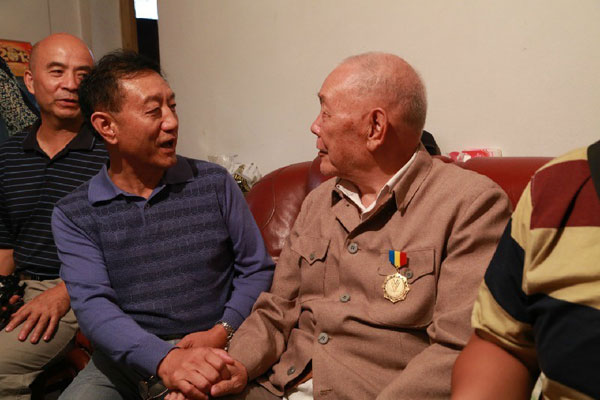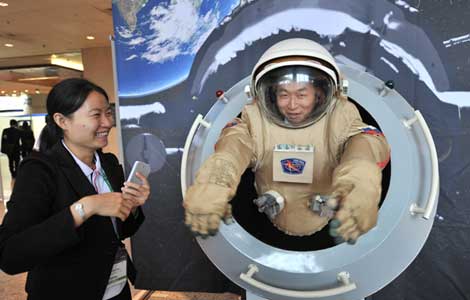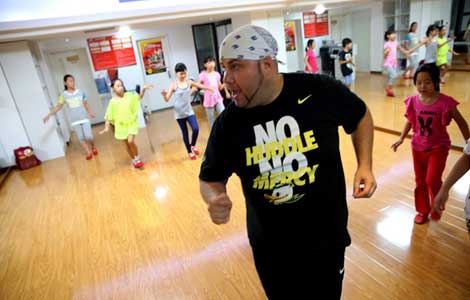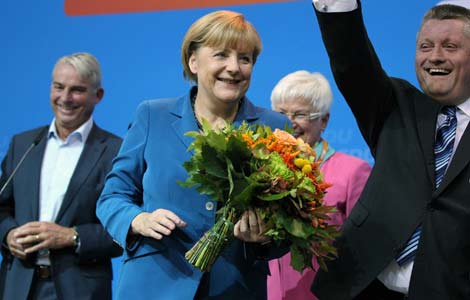State urged to play leading role in offering help
Updated: 2013-09-24 08:44
By Zhao Xu (China Daily)
|
||||||||
 |
|
Volunteers from a local charity foundation visit Liu Zhenwen (right), a KMT veteran in Guizhou province. Provided to China Daily |
The State, not non-governmental organizations, must lead the way in finding and offering help to former KMT soldiers from World War II, says Sun Chunlong, founding director of the Longyue Charity Foundation.
"Given the sensitivity of the matter, the tone set by the central government essentially decides whether we, as volunteers, can get any real help from the various levels of local government - help essential for our success," Sun said.
He was referring to the Ministry of Civil Affairs announcement in July that all surviving KMT World War II veterans will be covered by the country's social welfare network.
Days after the announcement, Sun's organization provided a list of names to the Civil Affairs Bureau in Changsha, Hunan province.
That list formed the basis for one of KMT veterans from World War II drawn up by local officials. A monthly subsidy of 800 yuan ($130) has been paid to each person on the list, starting from July 8.
Zhou Shenggui, secretary-general of the Changsha Charity Foundation, a branch of the China Charity Federation, a nationwide organization with close government ties, said, "Ninety-two people are on the list, which will be updated whenever a new candidate is found and certified."
Of the 800 yuan, the Changsha foundation is responsible for 75 percent, with the rest provided by the Longyue Charity Foundation.
Sun said: "While Changsha has set an example, the majority of local governments have yet to follow suit in acting on the new ministry requirement. A change of policy does not automatically bring about a change of mind, which to me is a big regret, as time is not on our side."
One way to enforce the policy's implementation, Sun said, is for the central government to be more specific, setting out detailed measures within a tight time frame.
"The local governments, with their extensive networks and vast resources, could easily spread the message that we are looking for these old soldiers, with the majority of them scattered around the country's vast rural areas." Zhou, who monitors distribution of the subsidy, has had a taste of just how urgent the matter is.
"Four on our list have since died," he said. "Nationwide, exactly how many of them are still alive is not known, but that number will be reduced to double digits within the next seven or eight years. Something must be done before it's too late."
Most Viewed
Editor's Picks

|

|

|

|

|

|
Today's Top News
Maduro aims to build trade plan with China
Sino-US college venture focuses on public health
Shanghai regulates govt-funded overseas training
Hong Kong kungfu drama to compete for Oscar
China to help deal with chemical weapons
Court media officers get greater say
Spending cuts on official meetings
Employee claims Danone gave bribes
US Weekly

|

|













